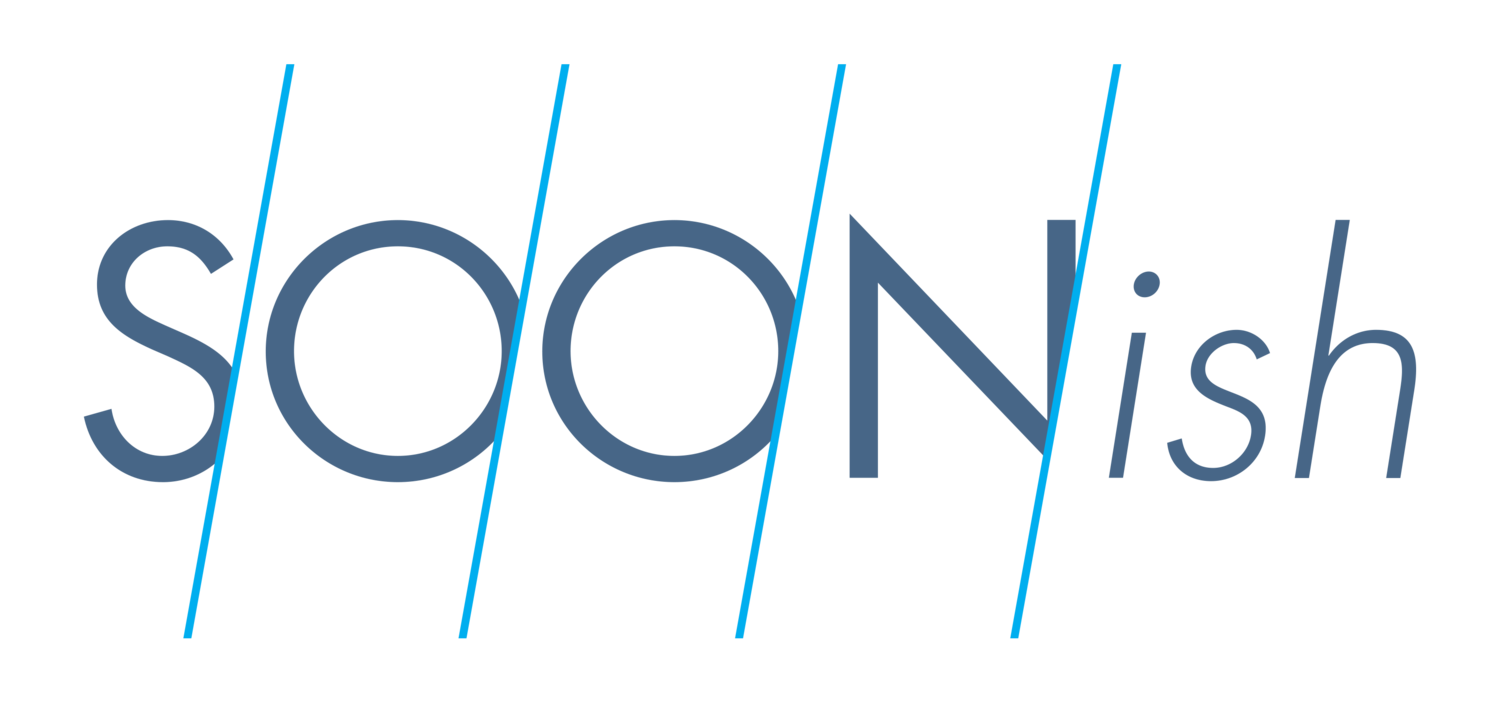3.07 | 08.19.19
In this short bonus episode, hear the bizarre story of a college student who scaled a New England weather tower on a dare, stole a curious scientific instrument as a trophy, and inadvertently disrupted a series of climate observations going back more than 130 years.
The Campbell-Stokes Sunshine Recorder would look right at home in Albus Dumbledore’s chambers at Hogwarts. It’s a sphere of glass that focuses the sun’s rays into a pinpoint bright enough to burn a line in a circular strip of cardboard; as the day progresses, the width of the line indicates the sun’s intensity and the duration of any cloud cover. At the Blue Hill Meteorological Observatory atop Great Blue Hill in Canton, MA, meteorologists have been burning a new card every day since 1885, creating the nation’s longest continuous dataset of sunshine made using a single instrument. In the era of global warming, such data is helping to document the longer stretches of sunshine that drive greater evaporation and larger storms.
The Blue Hill record was continuous, that is, right up to a spring day in 1993 when a young hiker and rock climber decided to appropriate the sunshine recorder as a souvenir. The theft attracted the interest of the local police and newspapers and the FBI. And while the observatory eventually bought a new recorder—and won the return of the old one—the incident left an irretrievable two-week gap in the observatory’s sunshine data. The moral of the story, in the words of Blue Hill program director Don McCasland: “Don't mess up an important data set that benefits everyone.”
I made this four-minute, non-narrated piece in 2018 as part of the 24-Hour Radio Race from KCRW’s Independent Producer Project.
Fun side note: Great Blue Hill is the location of the main transmitter of—and supplied the call letters for—Boston’s first public radio and television station, WGBH.
Photo Gallery
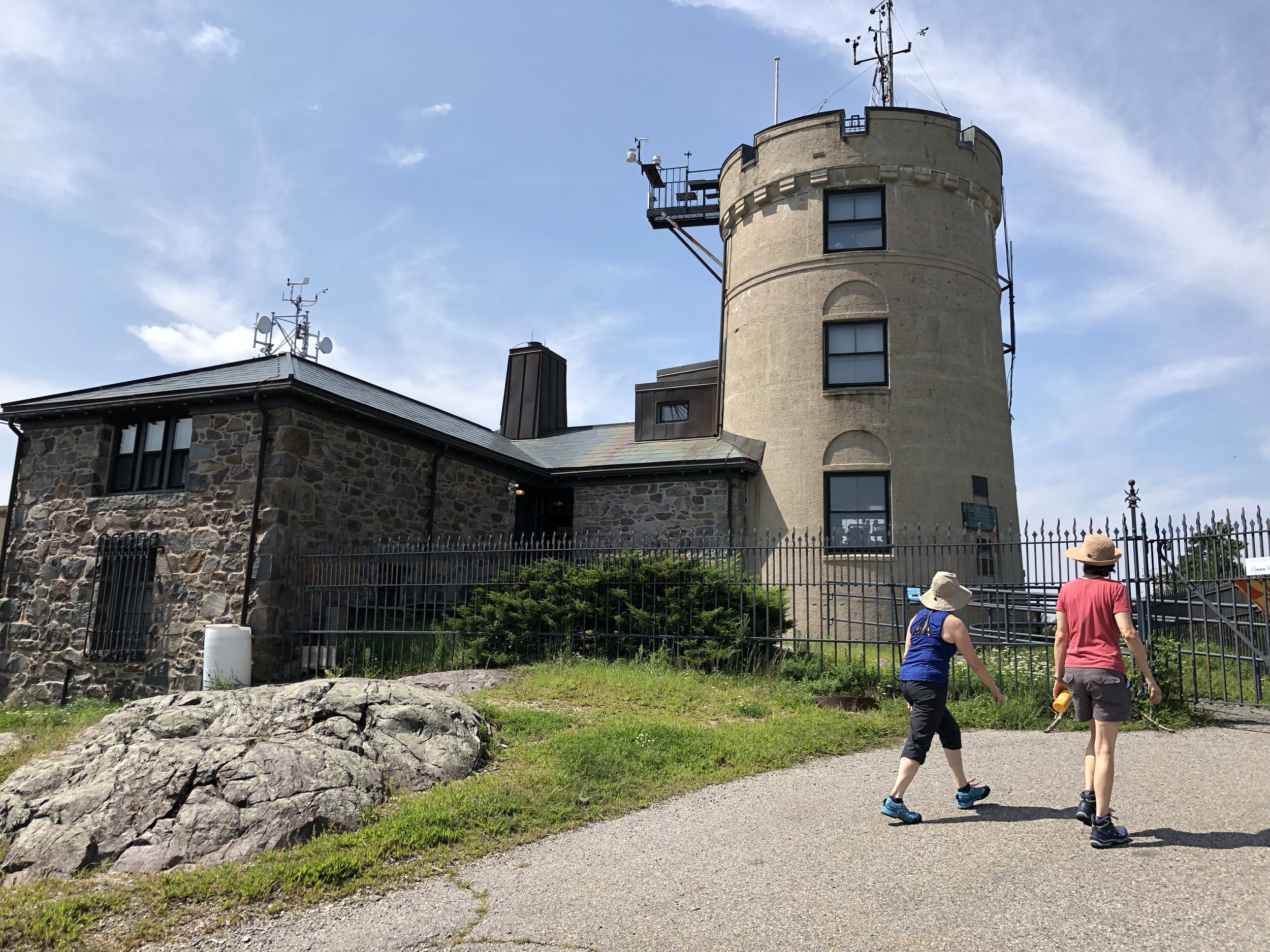
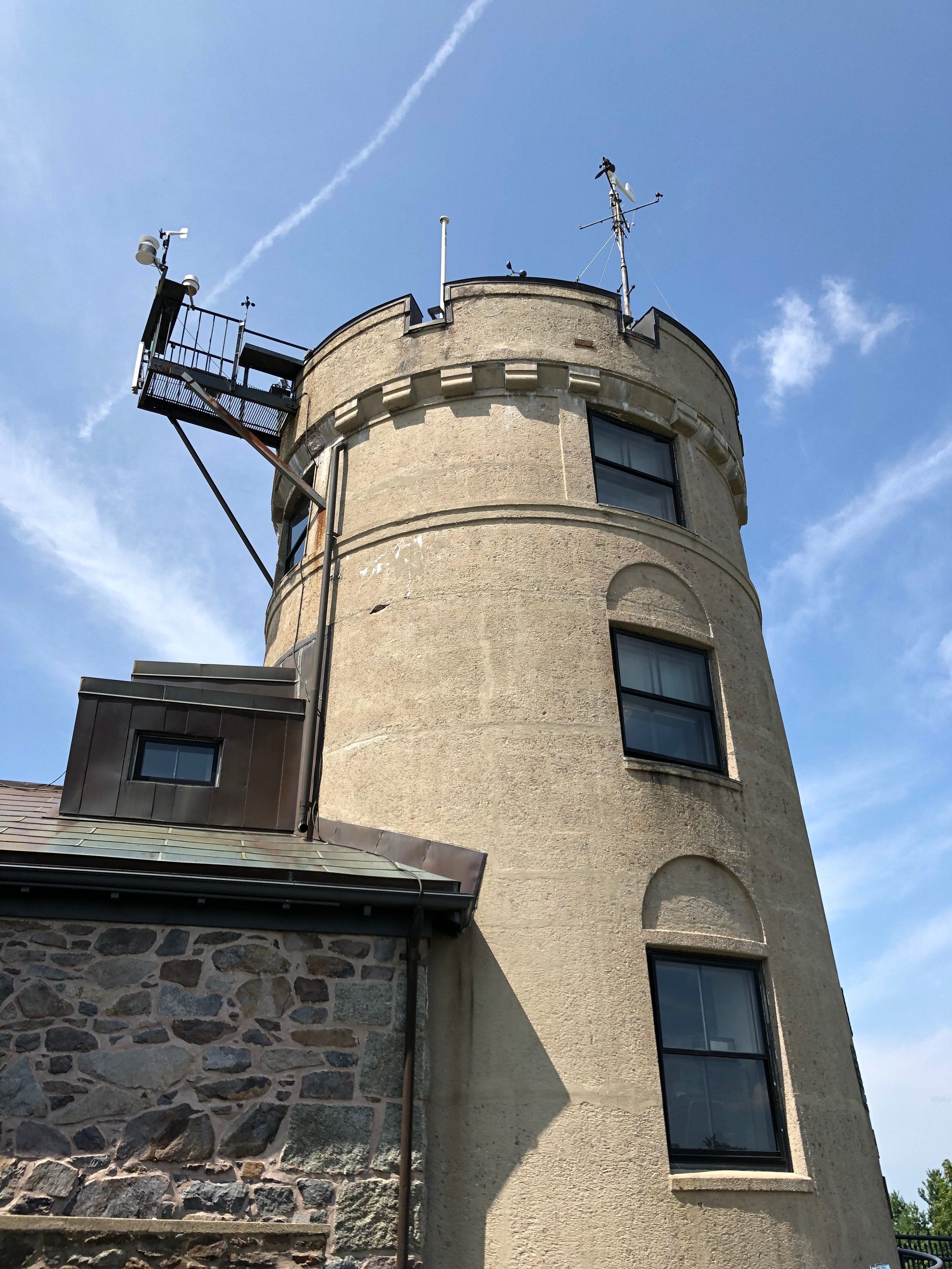

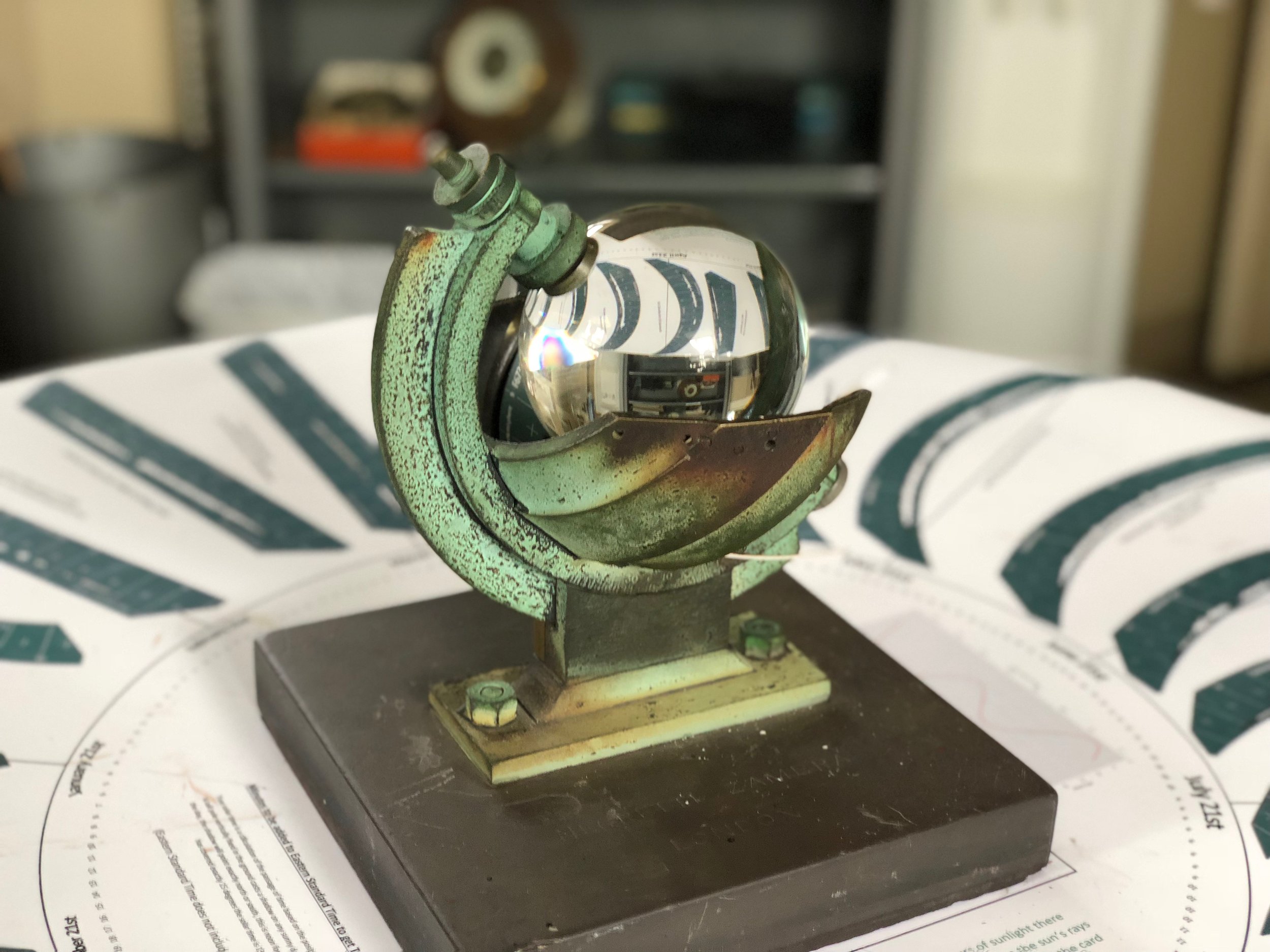
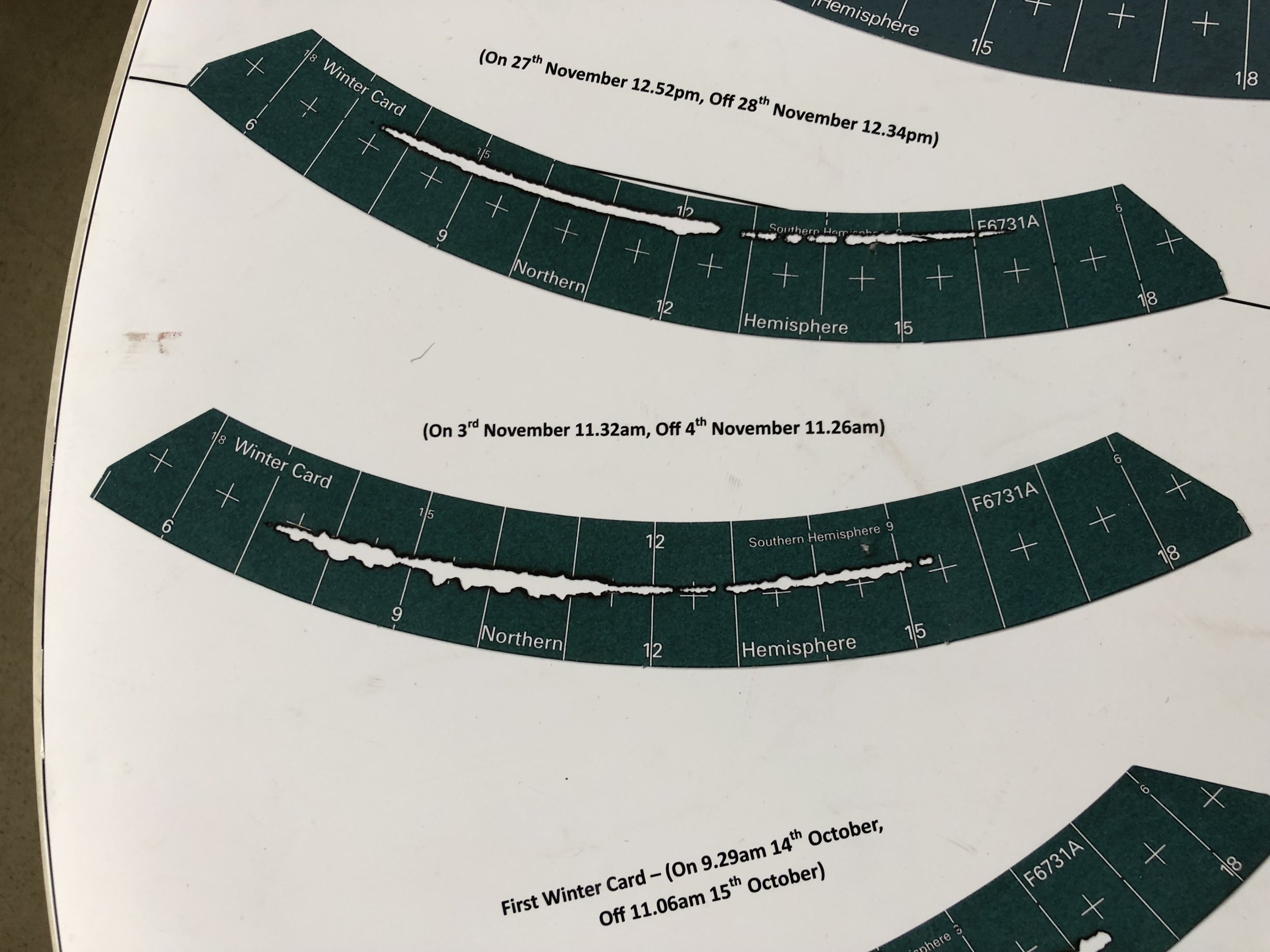
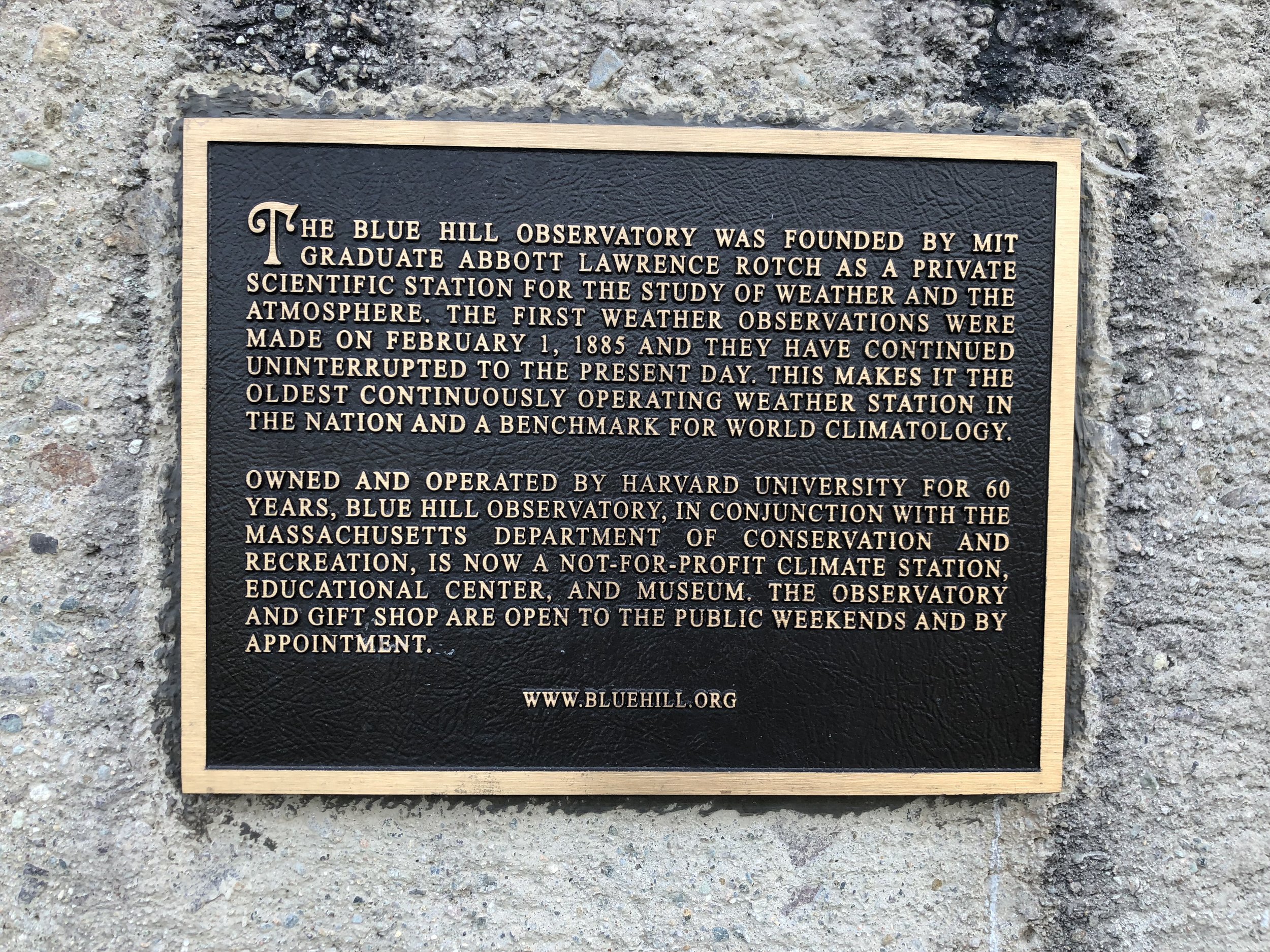
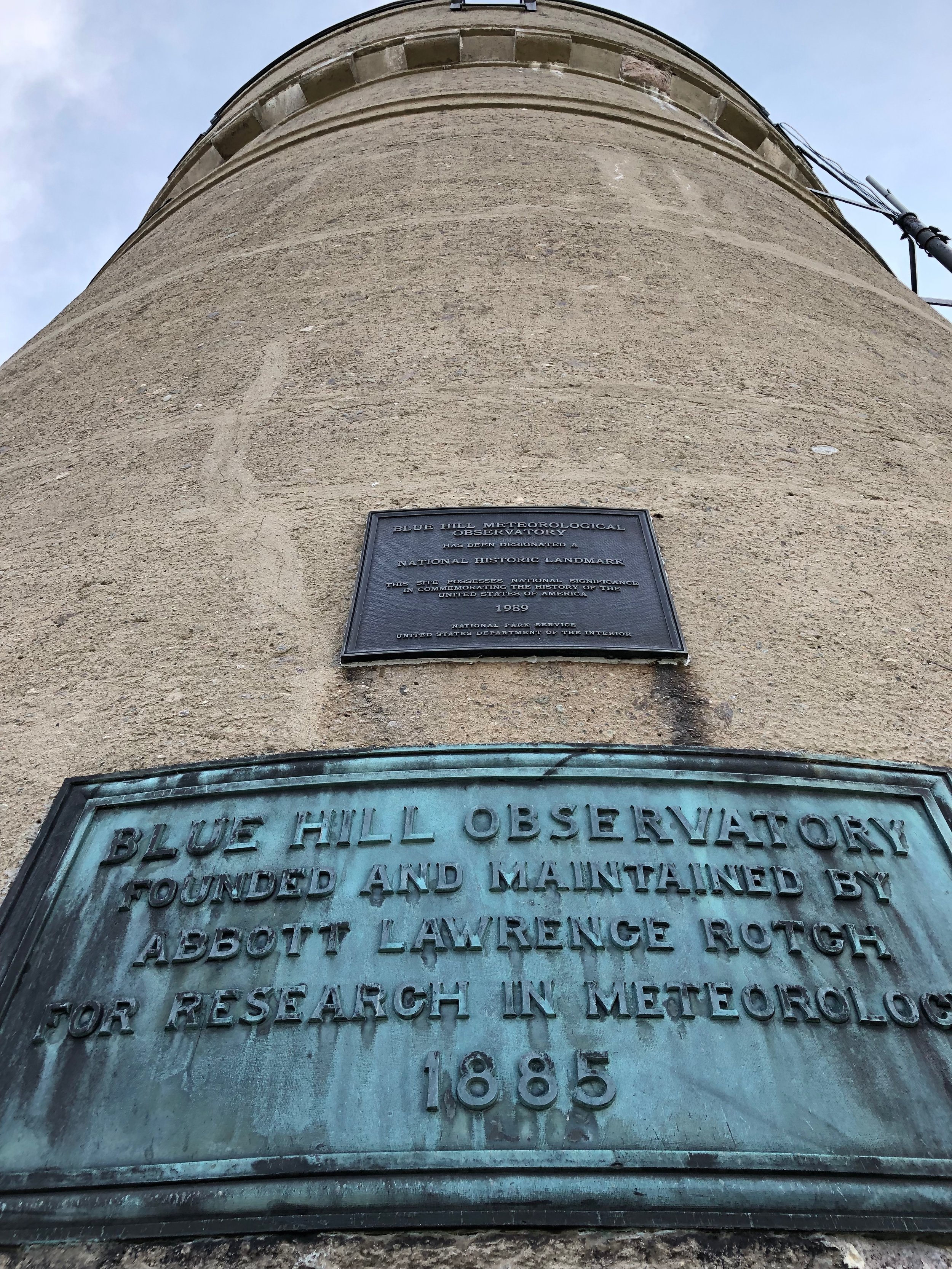
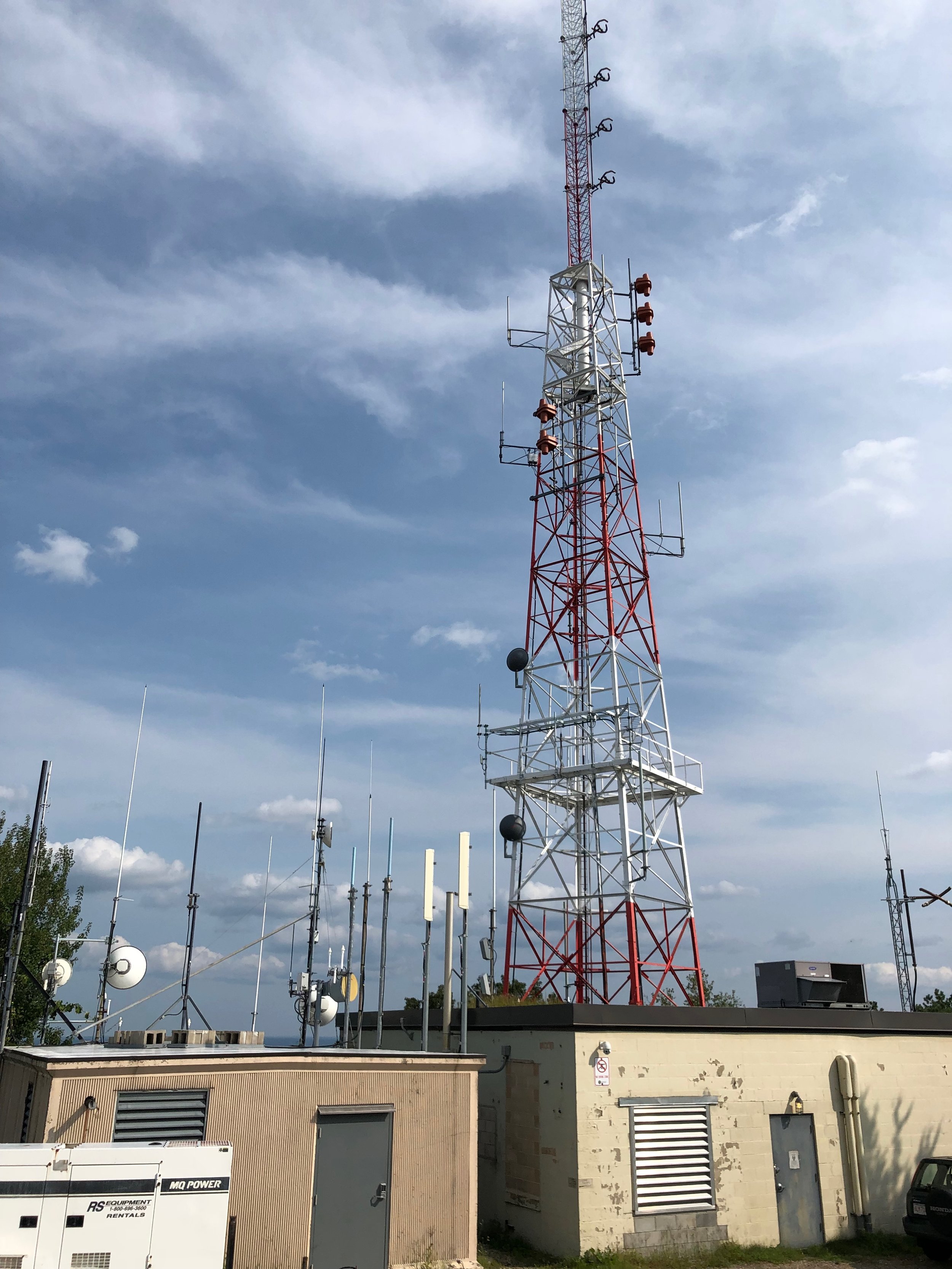
Mentioned in This Episode
Blue Hill Observatory & Science Center
Notes
The Soonish opening theme is by Graham Gordon Ramsay.
Additional music is from Titlecard Music and Sound.
If you like the show, please rate and review Soonish on Apple Podcasts / iTunes! The more ratings we get, the more people will find the show.
Listener support is the rocket fuel that keeps this whole ship going! You can pitch in with a per-episode donation at patreon.com/soonish.
We need your ideas to make the show better! Please take a few minutes to fill out our listener survey at soonishpodcast.org/survey.
Give us a shout on Twitter and sign up for our email newsletter, Signals from Soonish.
Full Transcript
Wade Roush: You’re listening to Soonish. I’m Wade Roush.
I’m on a summer break in the north woods of Michigan. But it’s a rainy afternoon here, so I decided to take a minute to share a little bonus episode. This is a short audio piece I made last summer, as part of the 24 hour radio race.
It’s a contest run by public radio station KCRW where judges announce a theme or a prompt at 10 am on a Saturday. Producers have to come up with a story idea relating to that theme, and then they have until 10 am Sunday to record, write, and edit the story.
The prompt for the 2018 radio race was The New Normal. And it’ll be pretty obvious how the idea of the new normal comes into my story.
It’s a non-narrated piece, so you won’t hear my voice until the end. The people I interviewed do all the explaining.
And they tell the true story of a bizarre burglary at a historic weather station outside Boston back in 1993.
It’s got fire, it’s got rock climbing, it’s got a crystal ball, it’s got climate change, it’s got a college prank that goes badly awry, and it’s got the FBI.
In other words, it’s about as close as I’ll ever come here at Soonish to doing a true crime story.
Okay, here we go.
Peter Volpe: So my name is Peter Volpe. I have been here for about seven years. I start off as an intern.
Julia Simonds: My name is Julia. My official pin says docent, an educator.
Don McCasland: My name is Don McCasland. I'm the program director here at the Blue Hill Meteorological Observatory.
Peter Volpe: So right now, we are 10 miles south southwest of Boston. Six hundred and thirty five feet above sea level.
Don McCasland: This is the oldest continually operating weather observatory in all of the United States. It opened on February 1st, 1885.
Don McCasland: So we are what's known as a benchmark climate station with the longest homogeneous weather data set in all of the USA.
Don McCasland: So the instrument that gets most people's attention, the what's that most often is our tool called the Campbell-Stokes Sunshine Recorder. It is a big crystal ball. It's shiny. And just like crows and ravens, people love shiny things.
Peter Volpe: It actually acts just like a magnifying glass. What happens is that when the sun shines through it, it burns a hole onto this piece of paper we put on, which is our Sunshine Card. And it has our marks on it. They help us figure out how many minutes of sunlight we receive each day. Very old fashioned but very efficient technology.
Julia Simonds: It kind of smells like burnt marshmallows. When you have a little kid smelling the sun card burning. It's like, where else in the world can you smell history happening?
Don McCasland: Interestingly, one of the things that has changed the lease is the total averages of our sunshine, 52 percent, although the most recent decade we have seen sunnier than average years. And if means if the sun is shining on the earth more often because the number of days before a giant storm is greater, the amount of evaporation is larger. When we do have storms, they tend to be greater than they used to be, even though there's fewer of them.
Julia Simonds: The normal old normal process of gentle weather I think is becoming more severe and more extreme.
Don McCasland: So it turns out there was a college student hiking Blue Hill with a bunch of his buddies.
Peter Volpe: It was in a pretty warm spring night and 1993, I believe the month was May.
Don McCasland: Then he pointed up at the weather tower saying, I'm a really good rock and wall climber. I'm so good I could scale that tower.
Peter Volpe: Supposedly they were Harvard students
Don McCasland: And his buddies being appropriately dubious said, you can't climb that. That's straight up. Well, he decided to prove to them that he could.
Peter Volpe: They went up the back, and on the back was our sunshine recorder.
Don McCasland: He managed to successfully get to the top and decided he wanted a trophy to show to his friends to prove that he made the top.
Peter Volpe: Didn't even know what it was.
Don McCasland: Somehow managed to safely lower it to the ground, lowered himself to the ground, brings it home and shows it off to all of his buddies.
Don McCasland: The FBI was going to investigate the theft. The [Quincy] Patriot Ledger wrote an article about the theft, mentioning the FBI. And the local police got a phone call. "How do I get in as little trouble as possible?" And the perpetrator was made a deal that if he returned the original instrument and paid all the expenses associated with getting the new instrument, that he would not get prosecuted.
Peter Volpe: Unfortunately, we did lose a couple of weeks worth of sunshine data before we got the replacement one.
Don McCasland: When we are talking with students about this, that you shouldn't touch other people's stuff because that stuff might be very valuable and very important. That is definitely the moral. The worldwide patterns are definitely changing and we're seeing examples of those changes here at Blue Hill. Don't mess up an important data set that benefits everyone in especially eastern Massachusetts, but actually the entire world because of the climate study that we do here.
Julia Simonds: You know, we had the winter of 2014-15, which broke records all over the place. And then last year it was 70 degrees in February. The new normal is not normal because there's more extremes.
Wade Roush: This piece was produced by Wade Roush as part of the 24 hour Radio Race from KCRW's Independent Producer Project.
Wade Roush: That’s it. I hope you enjoyed it.
My piece didn’t win a prize in the Radio Race, but it was a huge amount of fun to see if I could cram a story like that into the required four minutes.
Graham Gordon Ramsay wrote our theme music, and all our other music today was from Titlecard Music and Sound in Boston.
I’d like to thank all of the folks at the Blue Hill Observatory & Science Center in Canton, Massachusetts—especially Don McCasland, Peter Volpe, Julia Simonds, and Kaitlin Geagan.
The observatory is a fascinating spot that’s definitely worth visiting, and you can read all about their programs at www.bluehill.org.
To learn more about the 24 Radio Race and hear the winning stories going all the way back to 2013, just go to radiorace.kcrw.com.
Soonish is a proud member of Hub & Spoke, a Boston-based collective of smart, idea-driven podcasts. You can check out all of our shows at hubspokeaudio.org. And here’s a tip: keep an eye out for some big news from Hub & Spoke this fall.
Have a great summer. And I’ll be back with a bunch of new episodes …soonish.
